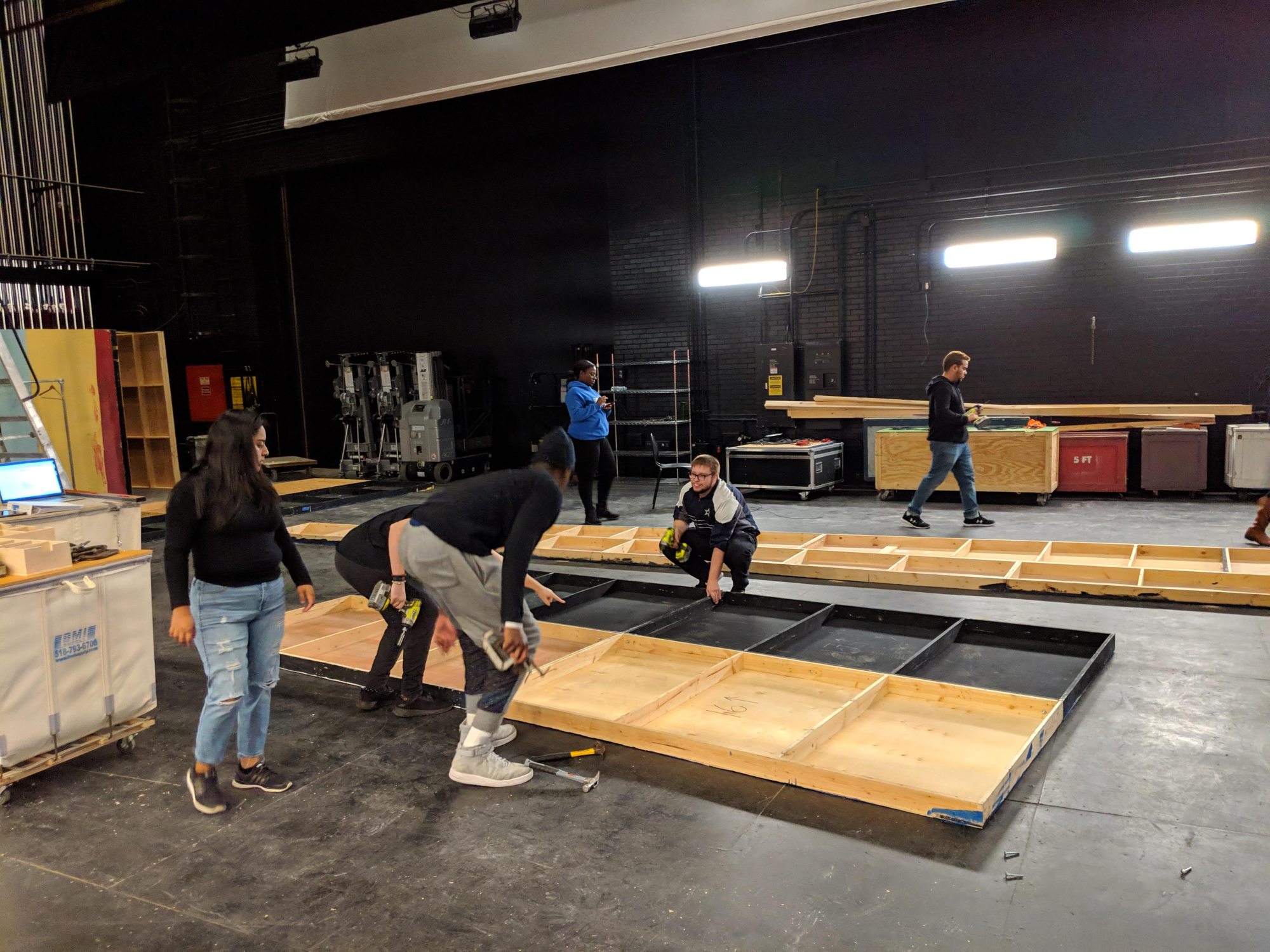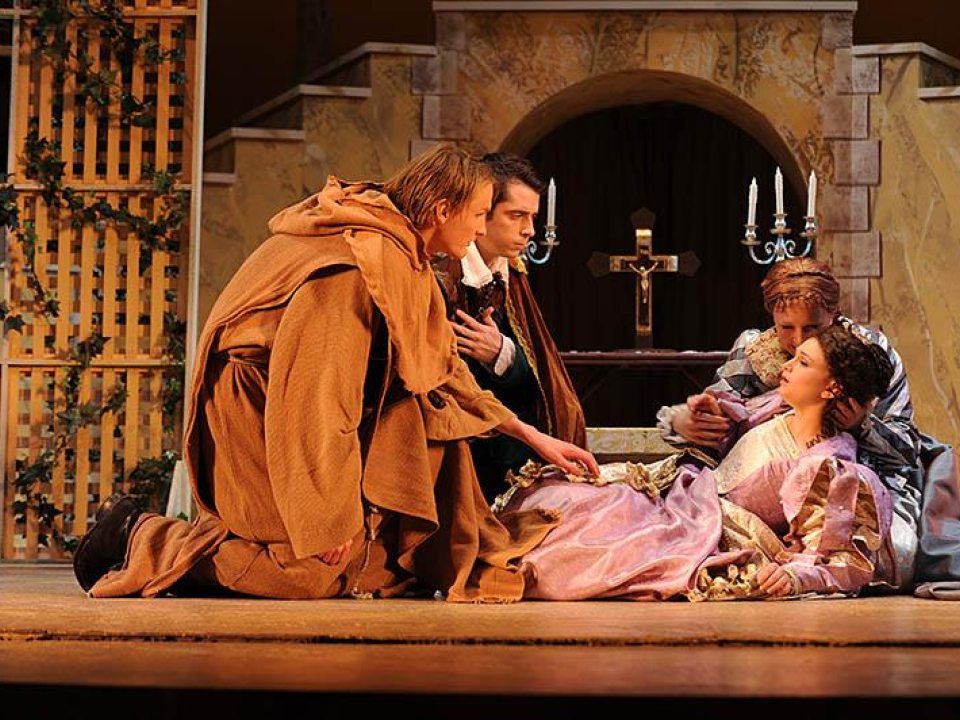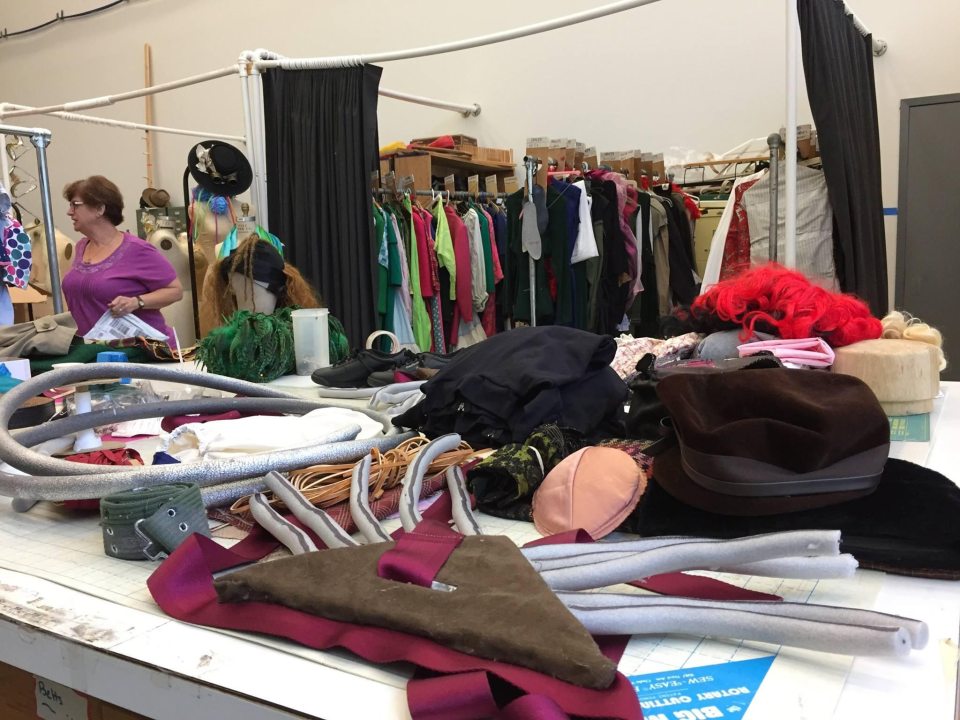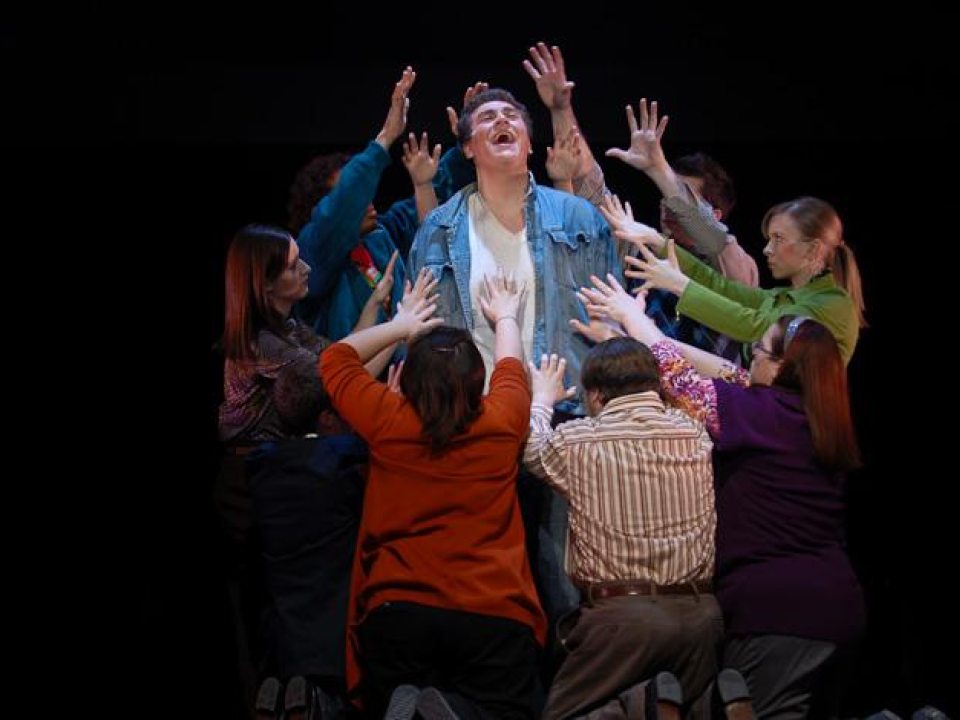Student rights, responsibilities and conduct
All students must abide by SUNY Oswego's approved Student Handbook code of conduct.
In addition to adhering to the SUNY Oswego Student Rights, Responsibilities and Conduct code, the Theatre Department has outlined the following expectations for all students participating in the program.
Theatre Department code of conduct
During your years as a student in the SUNY Oswego Theatre Department, it is expected that you will
- place the highest priority on success in all your classes;
- fulfill all necessary work required for your degree and actively participate in the program's many aspects;
- be consistent in your commitment to classes, rehearsals and calls by arriving prepared and ready to work at the designated start time;
- respect the work and abilities of others. A class, a production team, a cast and a crew work closely and often intensely in the pressure situation of a creative project. There is no excuse for rudeness or intolerant behavior. Cultivate grace under pressure.
- respect the spaces in which you work. Remember food and drink are not allowed in any of the performance spaces. The Green Room is available to students while the building is open. It is expected to be neat and orderly. The Green Room furniture cannot be taken out of the room or used for class scene work.
- encourage attitudes that recognize each person's contributions to the success of a production; remember that some members of the company may be doing their job for the first time.
- show respect for peer authority and understand the responsibilities you have when placed in a leadership position.
Questions and concerns
Any questions or concerns regarding the code of conduct, rights, and responsibilities should be directed to the Theatre Department Chair.
Krystal Kennel
125D Tyler Hall
315.312.2130 (Sally Van Buren, Administrative Assistant)
[email protected]




